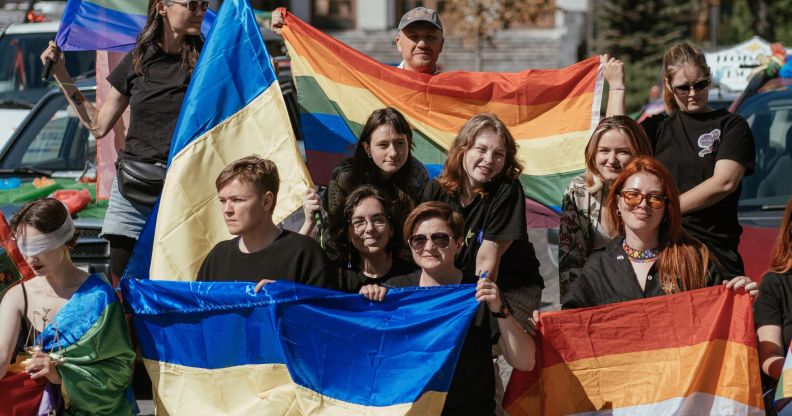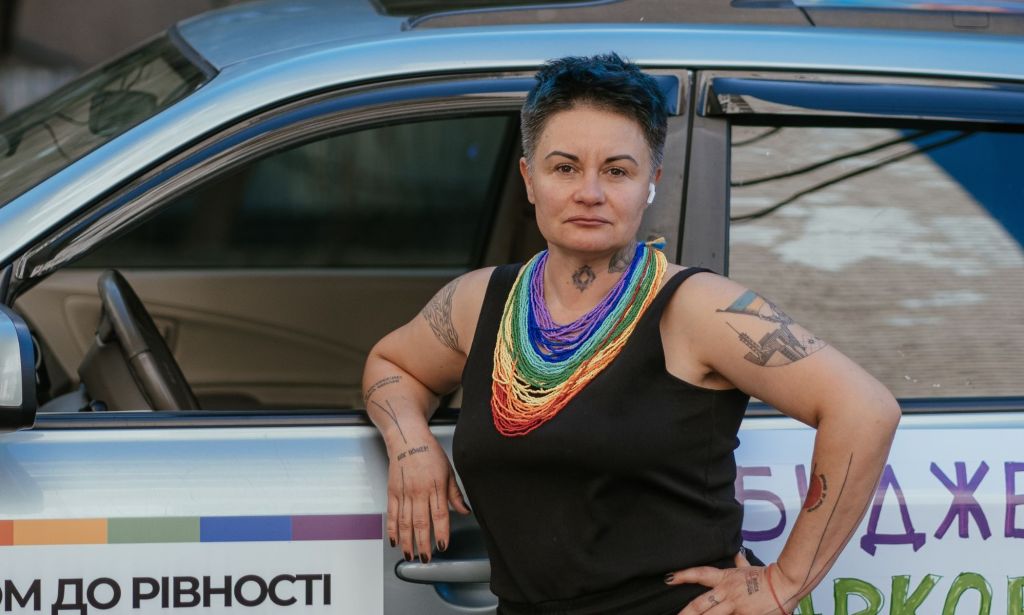LGBTQ+ Ukrainians stand in defiance at Kharkiv Pride close to the Russian border

The Pride parade took place in a set of cars, dubbed an “AutoPride”. (Supplied/KharkivPride)
LGBTQ+ Ukrainians have stood in defiance at Kharkiv Pride just 18 miles (30km) from the Russian border as the war between the two countries rages on.
The sixth annual Kharkiv Pride parade took place on Sunday (15 September) with scores of queer people taking part in an “auto Pride”, where cars were driven through the town centre, with Ukrainian and LGBTQ+ Pride flags flying from their windows.
A similar event took place in Kharkiv during the pandemic in 2020 as a way to uphold social-distancing regulations.
Organisers estimated that 13 cars filled with about 60 passengers drove across the city’s main avenues, promoting the need to uphold human rights, as onlookers celebrated. Auto Pride was chosen to “ensure maximum safety” of participants considering the challenges faced by Russia’s invasion more than two-and-a-half years ago.
Each car carried messages urging the Ukrainian parliament to pass legislation criminalising hate crimes, including Bill 5488, which recognises different sentences for crimes committed on the grounds of sexual orientation or gender identity.

While LGBTQ+ rights in Ukraine are improving, same-sex marriage is still banned under Article 51 of the constitution, passed in 1996, which defines marriage as a union between a man and a woman. Animosity toward homosexuality remains high, with more than 62 per cent of Ukrainians believing it is “not justifiable”, according to a World Values Survey in 2022.
Others in the parade urged European countries to help protect Kharkiv and support Ukraine in the war.
“We remember every day how important Ukraine’s victory is,” Kharkiv Pride co-organiser Anna Sharygina said. “Just as important to us is the fight for equal rights and the protection of the LGBTQ+ community. People who are fighting, risking their lives, cannot be denied their rights. It is both unjust and undignified, and the war has only highlighted these challenges.”
Several LGBTQ+ participants have served in the Ukrainian armed forces, or still are.
One of them, who uses the call sign “Sapsan,” urged the Ukrainian forces to acknowledge the presence of queer people in the army.
“Those who attend the march represent the voices of those on the front lines and, sadly, those who are no longer with us,” he said, before urging the government to pass Bill 5488.
Share your thoughts! Let us know in the comments below, and remember to keep the conversation respectful.
How did this story make you feel?

